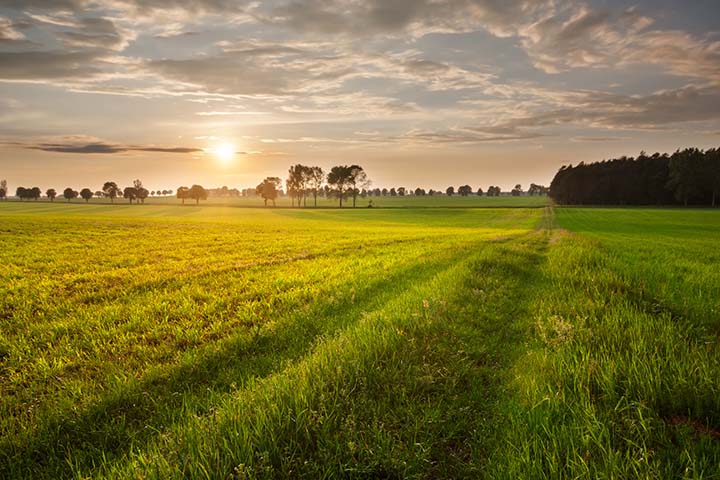Adèle Nicol
- Partner

From Brexit to the Coronavirus pandemic to COP26, the ever changing legal, economic and environmental landscapes in the UK have undoubtedly been difficult for both individuals and businesses to navigate. The farming sector, in particular, seems to have had more than its fair share of hurdles to contend with. Future uncertainties such as subsidies and carbon taxes, coupled with the numerous external pressures placed on the farming industry have arguably created an urgency and necessity to look to adapt and diversify, sooner rather than later.
While harvesting crops and grazing animals are often central to most farming operations, shooting, stalking and holiday letting have also long been considered traditional and effective ways of diversifying income streams. This, however, may slowly be changing. The undeniable focus that has been placed on “natural capital” and “carbon sequestration” in recent years has led to a number of inventive business ideas springing up all over the UK, especially within the farming sector. With the next generation of farmers taking the lead on business diversification, there seems to be a common theme threading its way through the wide range of weird and wonderful business ideas; a focus on eco-tourism.
A mixture of an increased popularity in staycations due to the covid-19 pandemic coupled with a heightened awareness of protecting the natural environment has launched what is now known as eco-tourism into the limelight. In a nut-shell, eco-tourism can be described as travelling locally to places of natural beauty or significance and is often accompanied by an element of restoration or regeneration. The key seems to be enhancing and improving what already exists and appreciating what is already there, rather than creating something new.
Thriving eco-tourism businesses have been created all across the UK, ranging from safari boat trips to spot beavers and birds in Perthshire and the creation of natural burial or memorial fields in Leicestershire to star gazing and forest bathing experiences in the Scottish Highlands.
Further, there are now a number of young farmers increasingly moving away from traditional farming techniques and favouring “no-till” methods, among other permaculture strategies, in a bid to improve carbon sequestration on their land. Adopting these methods and moving towards the permaculture model of “working with, rather than against nature” seems to have caught the attention and support of the media and public alike, dubbing this farming movement “agri-tourism”. A number of agri-tourism businesses have emerged in Scotland in recent years with a clear focus on sustainability, seasonal produce and organic growth. Examples of such businesses include the offering of “forage and cook” courses, wild mushroom identification courses and unique on-site “from field to fork” dining experiences, all of which have been a huge success and extremely popular.
With the ongoing legal and environmental uncertainties currently plaguing the farming sector, adaptability and diversity are key. A shift in social and cultural preferences to buy, travel and consume locally is undisputable, so capitalising on these trends will not only add diversity to the soil, but also to the syndicate!
For further information or assistance on any of the above information, please contact the Anderson Strathern rural department.
You might also be interested in these articles: